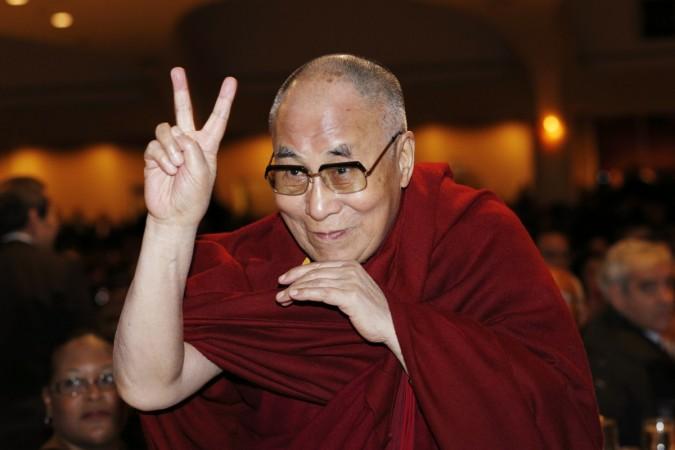
China on Friday warned India that bilateral ties between both countries would be affected if New Delhi allowed the Dalai Lama to visit Arunachal Pradesh, which has been the focus of the Sino-Indian dispute in the eastern sector. If Dalai Lama does visit the state, it may affect China's stand on India's bid to designate Masood Azhar as a global terrorist at the UN and to enter the Nuclear Suppliers' Group (NSG).
The Chinese foreign ministry issued the warning soon after Dai Bingguo, the country's former chief negotiator on the border issue, said that some form of give-and-take should be done to settle the ongoing border dispute. China claims that Arunachal Pradesh is a part of its territory and calls it south Tibet. The state consists of the eastern sector of the almost 3,500-km disputed border between India and China. Tawang, a town in Arunachal Pradesh located 400 km from Lhasa — the capital of the Tibet Autonomous Region in China — is a key seat of Tibetan Buddhism.
"China is gravely concerned over information that India has granted permission to the Dalai Lama to visit Arunachal Pradesh... India is fully aware of the seriousness of the Dalai Lama issue and the sensitivity of the China-India border question. Under such a background if India invites the Dalai Lama to visit the mentioned territory, it will cause serious damage to peace and stability of the border region and China-India relations," Chinese foreign ministry spokesman Geng Shuang said at a briefing.
Shuang added: "We have expressed concerns to the Indian side, urged India to stick to its political commitments and abide by important consensus the two sides have reached on the boundary question, refrain from actions that might complicate the issue, not provide a platform to the Dalai clique and protect the sound and stable development of the Sino-India relations."
However, India dismissed China's warning over Dalai Lama's visit and said that the "government's position is well known and has not changed."
India-China Border Dispute:
During the India-China strategic dialogue last month, Dai Bingguo had said: "If the Indian side takes care of China's concerns in the eastern sector of their border, the Chinese side will respond accordingly and address India's concerns elsewhere," signalling that the country would show flexibility in the western sector.
Dai Bingguo said that the "disputed territory in the eastern sector of the China-India boundary, including Tawang, is inalienable from China's Tibet in terms of cultural background and administrative jurisdiction... From the perspective of international law, the Simla Accord, as well as the 'McMahon Line' which it created, are not only unfair and illegitimate, but also illegal and invalid."
Effect on China's stand on Masood Azhar and India's NSG bid ?
The fact that India has allowed the Dalai Lama to visit Arunachal Pradesh could affect China's stand on India's bid to designate Masood Azhar as a global terrorist at the UN and also its ongoing efforts to enter the Nuclear Suppliers' Group (NSG).
India, which applied for NSG membership in May 2016, has been carrying out talks with China to support its bid to enter the NSG. However, China continues to block India's bid since the latter is a non-signatory to the Nuclear Non-Proliferation Treaty (NPT). It had earlier said that if it allowed India to enter the NSG, permission should also be granted to Pakistan, which is also a non-signatory to the NPT.
If India enters the NSG, it could expand its atomic energy sector, since it would allow trade and exchange of nuclear technologies among members of the group.
India has also proposed to list Masood Azhar, founder and leader of UN-designated terrorist group Jaish-e-Mohammed (JeM) and 2016 Pathankot attack mastermind, as a global terrorist at the UN. However, the proposal has been consistently blocked by China, which has said that it needs "solid evidence" to approve India's application. China's stand on the issue is also being seen as a ploy to keep Pakistan happy and the China-Pakistan Economic Corridor (CPEC) project on track.

















